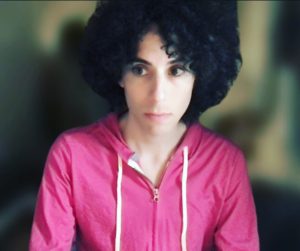November 16, 2021
 When I came out as trans and bi at the age of 33, one of the most common questions I received was “how are you doing?”—not that cultural nicety we pass off as etiquette in greeting someone, but a legitimate dive into emotions. And I’ve found that while happy, elated, and other such synonyms are all accurate, nothing quite described my feeling on Day 0 of my public new life as “relief” and nothing quite describes the responses I have received as the words support and love.
When I came out as trans and bi at the age of 33, one of the most common questions I received was “how are you doing?”—not that cultural nicety we pass off as etiquette in greeting someone, but a legitimate dive into emotions. And I’ve found that while happy, elated, and other such synonyms are all accurate, nothing quite described my feeling on Day 0 of my public new life as “relief” and nothing quite describes the responses I have received as the words support and love.
That sense of relief follows decades of living and feeling alone, unwanted, defective, and all the telltale signs that something is wrong with the world. It has taken far too long for me to learn the shame was never mine, but something forced upon me by a society that teaches the wrong lessons about orientation and identity. When I was growing up, organizations like Safe Space NOVA didn’t exist, and for the ones that did, they operated under the radar with minimal funding and resources. I saw no realistic way to connect, nor did I even acknowledge I might want to.
Perspective is a gift, but one that takes time to develop. My perspective through transition in my 30s prominently includes a wish that LGBTQ+ youth organizations existed and were prominent as I came of age. Had I been able to turn to a Safe Space NOVA-type of organization in high school, perhaps I would have been spared decades of all manners of unpleasantness.
Speaking as someone who has sheepishly fallen into an “older sister” or mentor type role for other trans individuals finding their way—mostly because I’m often one of the oldest people in the room thanks in large part to an evolving world that has expanded access and support to questioning youth—my acute lament at a childhood without resources in the 1990s and 2000s sublimates into a desire to help others, especially LGBQT+ youth who might just need to see a story or representation of someone like them.
As conscious as the LGBTQ+ community might be of social ills such as homophobia, biphobia, and transphobia, its members nonetheless are not immune from the very culture that propagates such prejudicial attitudes. Accordingly, we might hold unhealthy attitudes toward others or (and especially toward) ourselves; it takes a lot of work and care to deprogram that, no matter the orientation or identity of the individual.
I opine from my experience as a transgender woman when I fully acknowledge the unhealthy importance placed on performative gender denoted by a social goal such as “passing” or the purile and reductive “gold star gay/lesbian” terminology that promulgates biphobia within the community. For all our progress in the realm of acceptance, we still have so far yet to go.
These unhealthy attitudes, lessons, and toxic social atmosphere—and that mainly pertains to that which is imbued outside of the LGBTQ+ community—contributes to heightened health concerns within the community. The prompt for this question asks if the author has personally dealt with or witnessed someone firsthand deal with depression, anxiety, suicidal ideation, and drug abuse, and my answer is yes. I spent my life accumulating mental health diagnoses that begin with depression, expanded to anxiety, and spent far too much time on suicidal ideation. My drug was work and the condition was workaholism.
Only when I was able (or rather forced by pandemic shutdowns) to slow down, free myself from the distractions, and really consider things without shame or preconception, did the feelings of joy and relief enter into the picture.
